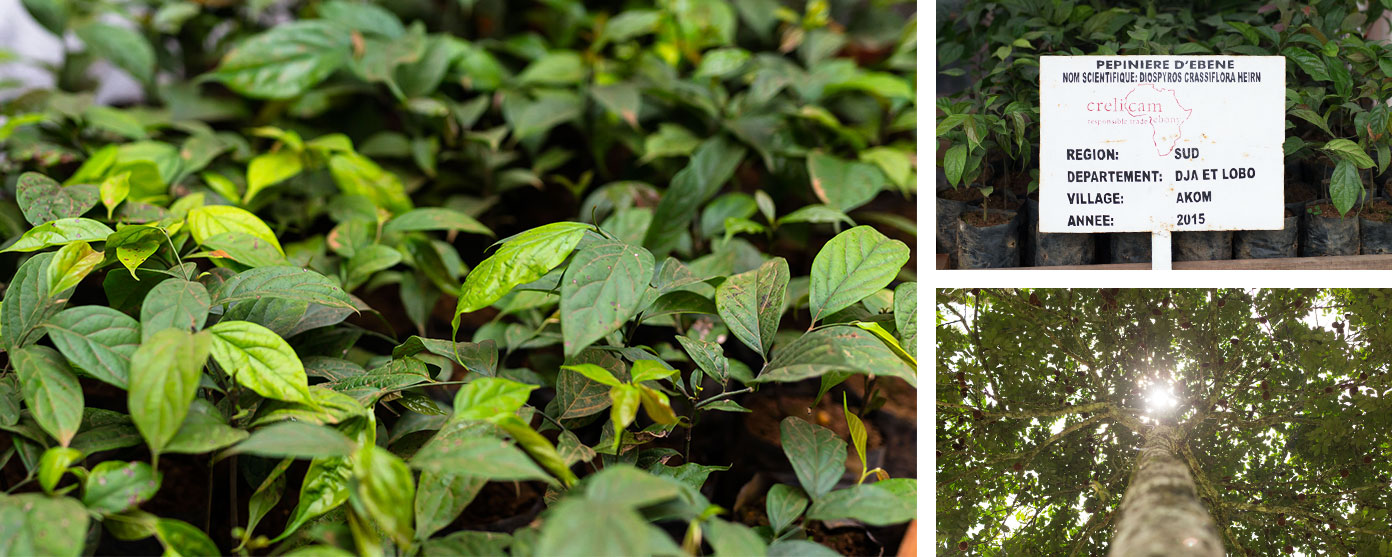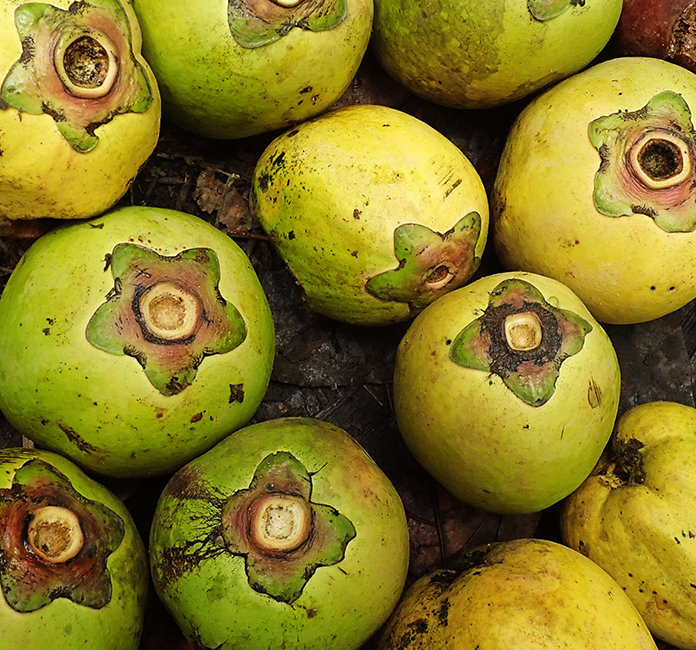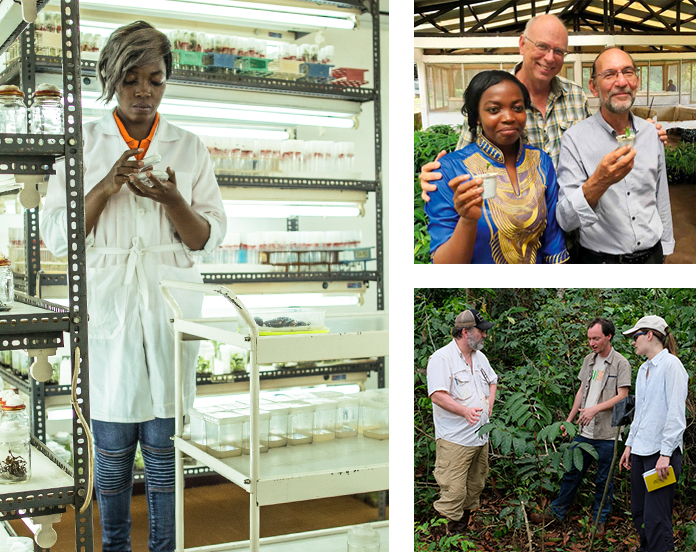
Replanting
In order to better understand the ecology and planting potential of African ebony (Diospyros crassiflora Hiern), we have embarked on The Ebony Project in partnership with the Congo Basin Institute (CBI), a multi-institutional organization comprised of universities and NGOs collectively focused on finding solutions to the region’s most pressing challenges. The project seeks to better understand the ecology of African ebony and to enhance stocks through community-driven planting efforts while collecting crucial ecological data to (1) identify key threats to the long-term sustainability of the species in its natural setting and (2) refine techniques for more sustainable production and management of the species in Central Africa. The project also provides native fruit and medicinal trees to support local communities. Our initial goal is to plant 15,000 ebony trees, and many trees have been planted already.
Working With Cameroon Laws to Encourage Replanting
Until recently, the process of planting ebony trees in Cameroon was complicated by several factors: existing Cameroonian laws; the lack of verifiable ownership rights over planted trees; and the decades (and generations) needed for a tree to grow large enough to provide commercial value. With support from Cameroon’s Ministry of Forests and Wildlife (MINFOF), Crelicam is working with the Congo Basin Institute to develop a program for replanting, and we carefully document the location of each tree with GPS mapping. This information goes into a silvicultural registry that we hope will help participants establish legal ownership, which will benefit the descendants of those who planted the tree. We’ve also worked with partners to integrate replanting into an agroforestry program that provides participating communities with fruit trees, medicinal plants, and income potential (from selling their surplus) in exchange for establishing the ebony trees in their community forests.
What is Agroforestry?
Agroforestry is a land management system that combines agriculture and forestry to create environmental, economic and social benefits. In Cameroon, an agroforestry system has been developed for forest-dependent communities that involves planting timber species such as ebony, which will someday provide commercial value, intercropped with local fruit trees (such as bush mango) and other trees that provide medicinal value. The arrangement supports a diverse forest ecosystem and a healthy habitat that can provide a range of benefits for future generations.
Groundbreaking Ebony Research
We are currently funding ebony research in Cameroon. The research is being conducted through the Congo Basin Institute (CBI). Located in Yaoundé, Cameroon, CBI was formed in partnership with the University of California, Los Angeles by UCLA professor Dr. Tom Smith together with the International Institute of Tropical Agriculture (IITA), one of the world’s largest tropical agriculture agencies. Tom is director of the Center for Tropical Research at UCLA’s Institute of the Environment and Sustainability (IoES). He has spent more than three decades in Cameroon conducting biodiversity and conservation research.
The research aims to learn more about the basic ecology of West African ebony (Diospyros crassiflora Hiern) in its native habitat, the tropical rainforest of Africa, in order to enhance its natural reproduction, and to explore alternative propagation methods. Already, a number of important discoveries have been made by CBI scientist Dr. Vincent Deblauwe, who has been working exclusively on The Ebony Project. These discoveries have shaped the development of a larger replanting blueprint involving local Cameroonian communities.
Community-Based Planting and Agroforestry Programs
The ebony research conducted through CBI has revealed new ways of producing ebony seedlings. This has led to a promising program for cultivating ebony in Cameroon’s community forests, with a preliminary goal of planting 15,000 trees at the community level, which is already underway. The program teaches local communities to establish ebony nurseries in their villages and later plant and cultivate the trees in their community forests until they are established on their own. The villages are paid to care for the trees during this time, and are given ownership rights to the tree. This provides an investment for their descendants, who will ultimately own the rights to sell a mature ebony tree. In the meantime, the communities are also given other high-value fruit trees and medicinal plants that help sustain them. The first village-level ebony nurseries have already been established, with additional trees already planted.
A Public-Private Partnership
The transformation of the Crelicam mill, together with Taylor and Madinter’s ebony research and reforestation efforts, has not gone unnoticed. Senior delegations from the World Bank, The U.N. REDD+ program, the U.N. Food & Agriculture Organization, and the U.S. Forest Service International Programs have visited Crelicam, CBI, and partnering communities involved in replanting. As a direct result, Taylor Guitars was invited to the United Nations Climate Change Conference in Bonn, Germany, in November 2017 to sign a Public-Private Partnership agreement with the Cameroonian Ministry of Environment. The agreement will lead to a formal analysis of the ebony project to determine if it can be scaled up and extended across southern Cameroon.




